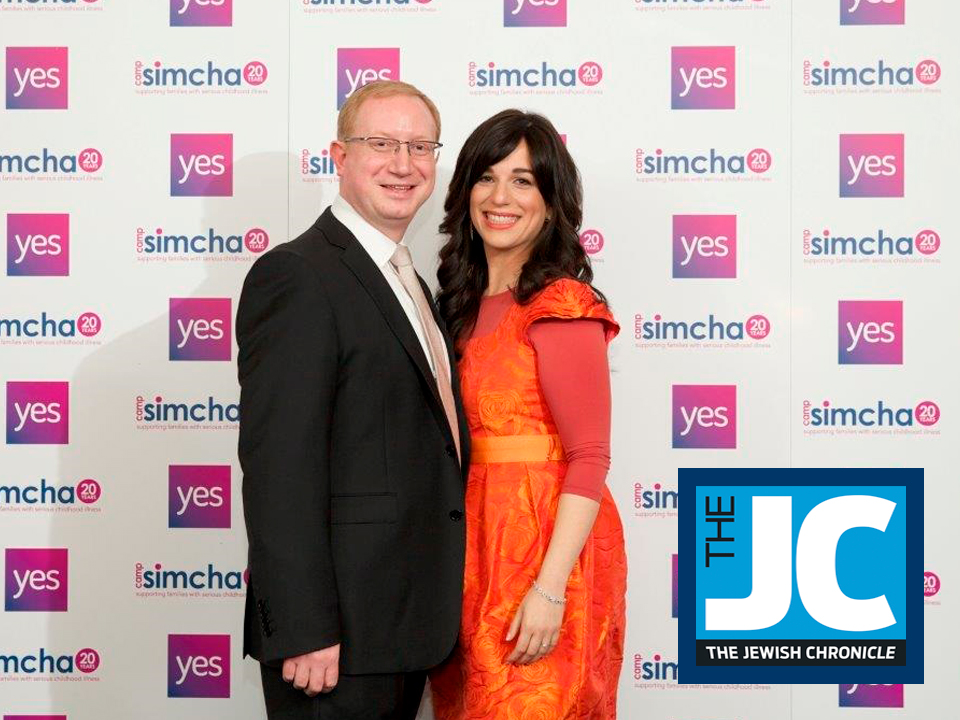


The 25th anniversary celebrations of Camp Simcha have been understandably muted, given the Covid crisis.
Two major fundraising dinners for the charity supporting families of children with serious illness, had to be cancelled. One, in Manchester, would have attracted up to 1,200 guests and the dinners were expected to generate the bulk of Camp Simcha’s operating costs.
The charity’s marketing team hopes a match-funding campaign starting in early February will restore its finances.
Pandemic restrictions further meant that its flagship annual toy drive was far more time consuming. Instead of volunteers spending a day packing toys for children in hospital, 100 people filled socially-distanced timeslots over two weeks. They packed more than 10,000 toys which were delivered to some 120 hospitals in London, Essex, Hertfordshire and Manchester.
But the Covid crisis has also impacted on service users, as Camp Simcha founders Meir Plancey and his wife Rachely told the JC.
The charity has had to be “very innovative” in maintaining its support for families, Mrs Plancey, 43, explained, “it’s a hot meal when they’ve been in hospital unexpectedly. It’s a night’s respite when local authority provision has not given them what they need.”
At the outset, Camp Simcha supported children with cancer, their siblings and their parents. It now assists those with life-threatening conditions, among them rare genetic disorders and cystic fibrosis. For the past five years, it has aided families with premature babies and it is currently running a pilot project to help children with certain mental health conditions.
Mr Plancey, 48, said the decision to launch the charity was inspired by an experience while studying in Israel in the 1990s. He stayed with a family whose five-year old son was diagnosed with a brain tumour. Taking the boy to hospital and attempting to distract him from his illness made him want to instil quality of life.
Camp Simcha was founded at his kitchen table in 1995, later migrating to a spare room at Borehamwood and Elstree Synagogue, where his father was rabbi. Mr Plancey handed over control of the charity to Rachely to focus on his career and they have watched it grow.
It now has its own offices and permanent staff and supported over 200 families last year. Mr Plancey cited Camp Simcha’s ability to adapt as a strength during uncertain times. For his wife, the target is “that there is no Jewish child out there who needs our support who is not getting it.
“we’ve always called it the Camp Simcha family” she said. “As we’ve grown, that has remained. When you are part of Camp Simcha, you have this family feel.”